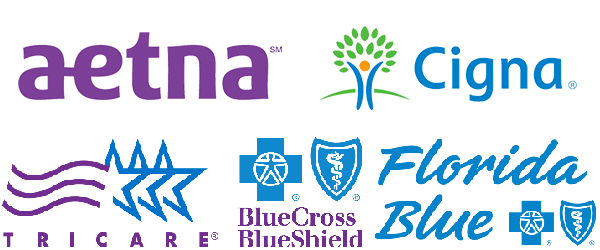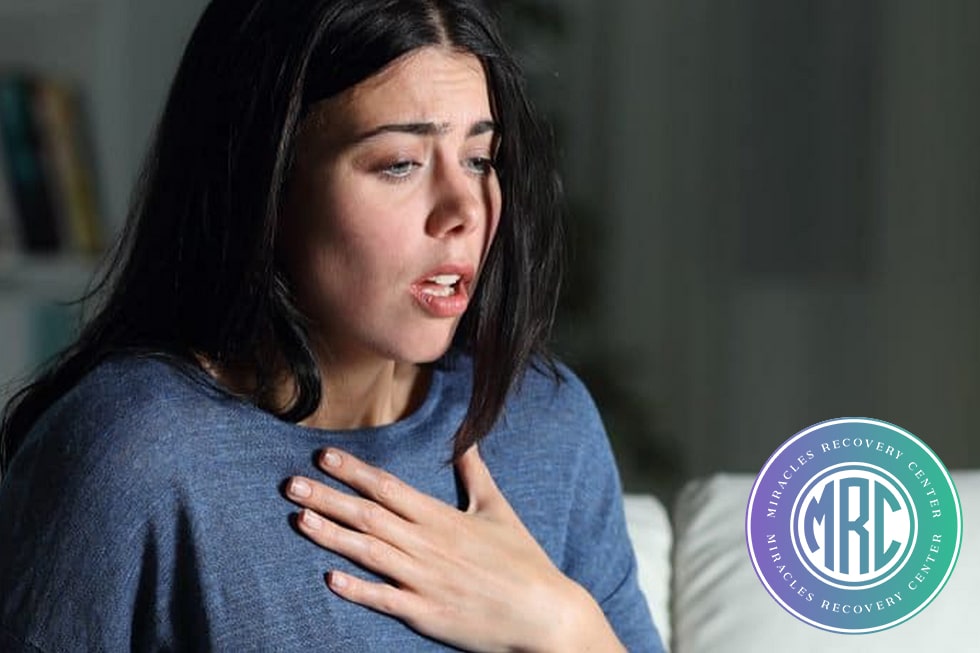What Is Substance-Induced Anxiety Disorder?
- Restlessness
- Nervousness
- Panic caused by taking a drug or stopping a drug
However, if you had anxiety before you started using the drug, it does not constitute a substance-induced anxiety disorder, even if it makes your anxiety symptoms worse.
Substance or medication-induced anxiety disorder is the diagnostic name for anxiety or panic attacks that are caused by drugs, alcohol, or medications. It’s normal to have feelings of anxiety during a stressful situation. Even the passing feelings of anxiety or panic can occur spontaneously during intoxication or withdrawal from drugs. But substance-induced anxiety disorder causes clinically notable distress or functional impairment.
Regrettably, the same drugs that some people use to boost their confidence, help them relax, and lower inhibitions are the same ones that are most likely to cause substance-induced anxiety disorder or panic attacks. Most of the time, people don’t realize that it is the toxic effects of drugs, alcohol, or medications that are actually the cause of the anxiety because they associate those substances with feeling good.
Table of Contents
- 1 Which Drugs?
- 2 Symptoms of Drug-Induced Anxiety
- 3 Diagnosis of Substance/Medication-Induced Anxiety Disorder
- 4 What Are Other Types of Anxiety Disorders?
- 5 How Can Substance-Induced Anxiety Disorder Be Treated?
- 6 Treatment Programs For Substance-Induced Anxiety Disorder
- 7 Treating Abuse And Anxiety
- 8 References:
- 9 We Accept Most Insurance
How Substance-Induced Anxiety Disorder Caused?
Your brain makes chemicals that affect your thoughts, emotions, and actions. So, without the right balance of chemicals in your brain, there may be problems with the way you think, feel, or act. The toxic effects of some drugs alter the amounts of these chemicals. Some drugs cause anxiety while you are taking them, yet others can cause anxiety for a while after you quit taking them.
Which Drugs?
The medications and drugs that can cause anxiety include:
- Alcohol
- Illegal drugs such as:
- Cocaine
- LSD
- Cannabis
- Hallucinogens
- Amphetamines and other stimulants
- Inhalants
- Over-the-counter medications such as certain decongestants
- Caffeine
- Prescription medications such as:
- Stimulants
- Steroids
- Asthma medications
- Parkinson’s disease medication
- Thyroid medication
- Antihistamines
- Anticonvulsants
- Mood stabilizers
- Antidepressants
- Anesthetics
Certain heavy metals and toxins can cause panic or anxiety symptoms including:
- Organophosphate insecticide
- Nerve gases
- Carbon monoxide
- Carbon dioxide
- Vaporous substances like gasoline and paint
Symptoms of Drug-Induced Anxiety
Symptoms may begin while you are taking the drugs or within a few days after you stop using them. In addition to feeling nervous and worried, symptoms may include:
- Worrying that bad things will happen to you or that you’ll never get better
- Difficulty falling asleep or waking up a lot during the night
- Problems with memory or concentration
- Fear that you are losing control of yourself and will die or go crazy
Weight loss because:
- You don’t feel like eating
- Your stomach hurts
- Diarrhea or vomiting
Experiencing:
- Hot flashes
- Chills
- Sweating
- Shaking
- Numbness
- A pounding heartbeat
- Having chest pain and trouble breathing and swallowing
When Do the Symptoms Begin?
In certain instances, the drug toxicity can cause anxiety or panic to happen right away. There is even a category “with onset during intoxication.” This means that the anxiety episode started when the person was drunk or high on the drug. Or it can occur during or shortly after withdrawal from the drug. Symptoms of anxiety are common at this time.
Diagnosis of Substance/Medication-Induced Anxiety Disorder
When anxiety is simply a symptom of withdrawal, the symptoms will typically go away within a few days of quitting drug or alcohol use. But with substance-induced anxiety disorder, the panic and anxiety symptoms are adequately severe to justify independent medical attention.
The diagnosis isn’t made if the person has a history of an anxiety disorder without substance use, or if the symptoms continue for more than a month after the individual quits alcohol, drugs, or medication. Remember, it’s substance-induced anxiety.
If your medical provider gives you a diagnosis of substance/medication-induced anxiety disorder, they will check to make sure that you didn’t have anxiety before the use of alcohol, drugs, or medications that are believed to be the cause. That’s because there are several different types of anxiety disorders. And if the symptoms were there before the substance use, it isn’t diagnosed as substance/medication-induced anxiety disorder.
In addition, for the diagnosis of substance/medication-induced anxiety disorder, the symptoms have to be causing a large amount of emotional upset or significantly affecting the person’s life. This includes work, social life, or any other part of life that is important.
What Are Other Types of Anxiety Disorders?
An anxiety disorder is a serious mental illness that can cause significant worry or fear that doesn’t go away and might even get worse. Everyone feels anxious sometimes, but with an anxiety disorder, it tends to be relatively constant and has a negative effect that invades a person’s quality of life. There are several anxiety disorders including:
Generalized Anxiety Disorder (GAD)
People with GAD experience anxiety about their health, job, money, or family in a persistent, excessive, and intrusive way.
Obsessive-Compulsive Disorder (OCD)
Individuals with this mental health disorder have obsessions and compulsions that interfere with their daily life. People with this often experience serious anxiety as a result of obsessive thoughts. They often perform extensive rituals to try to reduce the anxiety caused by the obsessions.
Panic Disorder
Panic disorder is a type of anxiety disorder that features intense, repetitive, and unexpected panic attacks. It is different from normal fear and anxiety because it is frequently extreme and seems to come from nowhere.
Post-Traumatic Stress Disorder (PTSD)
PTSD is a mental health disorder in which people experience a variety of symptoms after being exposed to a traumatic event such as:
- Abuse
- Violence
- The sudden death of a loved one
- War and terrorism
- Injury/accidents
Symptoms of PTSD may include flashbacks, nightmares, anxiety, and avoidance.
Social Anxiety Disorder (SAD)
It’s normal to feel nervous when facing certain social situations but people with SAD are severely self-conscious and worry about what people think to the point of experiencing physical symptoms such as:
- Blushing
- Nausea
- Shaking
- Rapid heart rate
- Sweating
- Lightheadedness
Specific Phobias
A specific phobia is an irrational and intense fear of a specific object or situation. It’s an overpowering fear that causes avoidance or extreme discomfort. The standards for diagnosing a specific phobia from the American Psychiatric Association are:
- Unreasonable, excessive fear: Persistent and intense fear triggered by a specific object or situation.
- Immediate anxiety response: The fear reaction is out of proportion to the situation and starts almost instantly when facing the object or situation.
- Avoidance or extreme distress: Going out of your way to avoid the object or situation, or enduring it with extreme distress.
- Life-limiting: The phobia markedly affects the person’s school, work, or personal life.
- Six months duration: The duration of symptoms must last for at least six months.
- Not caused by another disorder: A lot of anxiety disorders have similar symptoms. Similar conditions such as agoraphobia, OCD, and separation anxiety need to be ruled out first.
How Can Substance-Induced Anxiety Disorder Be Treated?
If you think that a medication is causing your anxiety, your healthcare provider may be able to change your medication or treat your symptoms. Don’t stop taking prescribed medication or change the dosage unless your provider has told you to.
Drug abuse and dependence can be treated but for it to be successful, you have to want to stop using drugs. Don’t try to use alcohol or other drugs to reduce withdrawal symptoms.
Detox
If your substance-induced anxiety is the result of using illegal drugs or alcohol, you may have an addiction. Many people try to treat their anxiety by using more of the very substance that is causing the anxiety. In this case, you may need a detoxification period to help handle the withdrawal symptoms when you quit using.
On the other hand, if your anxiety begins when you stop using drugs or alcohol, you will need additional supervision to treat your anxiety symptoms while you detox. The anxiety feelings should subside within a few days of discontinuing the substance use. You will still need to deal with substance use disorder (SUD).
Therapy
A substance-induced anxiety disorder may be treated with either individual or group therapy, or a combination of both. Group therapy with other people who have SUDs is often very helpful. At times, medications for depression or anxiety may help you stop your substance use. This should be discussed with your healthcare provider or therapist.
Behavioral Therapy
Behavioral therapy is an evidence-based approach to treating substance abuse. Several types of behavioral therapy are effective. They include:
Cognitive-behavioral therapy (CBT)
This is the most common behavioral therapy and it has shown to be effective when used alone or in combination with other treatments. CBT looks at the relationships between our thoughts, feelings, and behaviors. It examines the underlying beliefs and conflicts between what we want to do and what we do.
Dialectical behavioral therapy (DBT)
DBT is a modified type of CBT. The goals in DBT are to teach people to live in the moment, build healthy skills to cope with stress, regulate their emotions, and improve relationships.
Treatment Programs For Substance-Induced Anxiety Disorder
Residential Treatment
In a residential treatment program, you live in the facility for the duration of your treatment. This allows you to focus on rehab without any distractions or triggers from the outside environment.
Partial Hospitalization Program (PHP)
A PHP is similar to an outpatient program. Typically, you will attend therapy sessions at the treatment center 5 days a week for 20 hours and go home during the evening. These programs can be as effective as residential treatment if you have a stable, healthy home environment.
Intensive Outpatient Program (IOP)
In an intensive outpatient program, individuals generally attend treatment sessions 3 days per week at the facility.
Outpatient Treatment Program (OP)
An OP has treatment sessions at the facility but a smaller time commitment. Outpatient programs are also helpful as step-down programs after completing a higher level of care. The longer you stay in a treatment program, the better your chance for a successful, lifelong recovery.
Dual Diagnosis
People who have anxiety, or any other mental condition, that co-exists with a SUD, are said to have a dual diagnosis. If you are dealing with this situation, a treatment center that is prepared to treat both conditions simultaneously is vital.
Treating Abuse And Anxiety
Are you dealing with anxiety and substance abuse? If your anxiety is caused by a medication, discussing the problem with your healthcare provider is the first step. If your anxiety is caused by substance use or by stopping substance use, or if you have been self-medicating your anxiety issue, you may need a professional detox, depending on the substance being used.
At Miracles Recovery Center, we have three levels of outpatient programs so you can enter treatment at the level that’s appropriate for you and step down to lower levels when you are ready. Miracles also have a Dual Diagnosis program available if you are struggling with a mental issue as well as a SUD. Our staff is experienced, professional, caring, and fully licensed, and certified. You can put your recovery safely in our hands. We will work with you to reach your goals. Contact us today.
References:
https://hhma.org/healthadvisor/aha-saanxiet-bha/
We Accept Most Insurance
Miracles Recovery Center in Port St. Lucie, FL works with most commercial insurance providers to cover most - if not ALL - of the costs associated with treatment! If you are covered under health insurance, please give us a call so that we can verify your benefits and substance abuse coverage. We are also an in-network provider and contracted with the following health insurance providers:











